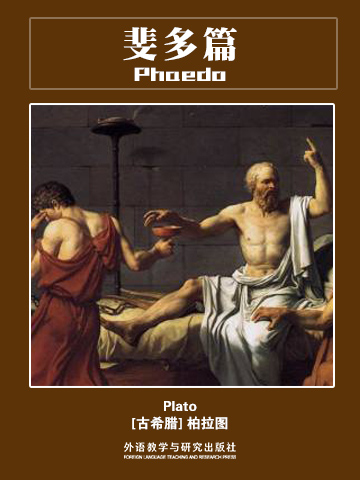绝对与对立,有限与无限,在对话中探索人生哲学。
Socrates, as depicted by his devoted student, Plato, is one of the true spiritual giants of recorded history, standing in such company as Jesus and the Buddha. The Phaedo preserves the moment where Socrates earned his immortality, forced to commit suicide by the Athenian democracy.
《斐多篇》是柏拉图的第四篇对话录,内容为苏格拉底饮下毒药前的对话。斐多篇当中的叙事者为斐多,一个曾受过苏格拉底帮助的年轻人并成为其弟子,在苏格拉底死亡当年亦跟随在他身旁。斐多的对话对象为弗里乌斯的伊奇,一个同是哲学家的朋友。 在对话中,苏格拉底从多方面试图证明人灵魂的存在。
Plato's Phaedo, also known to ancient readers as Plato's On The Soul, is one of the great dialogues of his middle period. The Phaedo, which depicts the death of Socrates, is also Plato's fourth and last dialogue to detail the philosopher's final days, following Euthyphro, Apology, and Crito. In the dialogue, Socrates discusses the nature of the afterlife on his last day before being executed by drinking hemlock. One of the main themes in the Phaedo is the idea that the soul is immortal.
- PHAEDO
- 书评 写书评
- 笔记
-
书评加载中...













 京公网安备 11010802032529号
京公网安备 11010802032529号
笔记加载中...